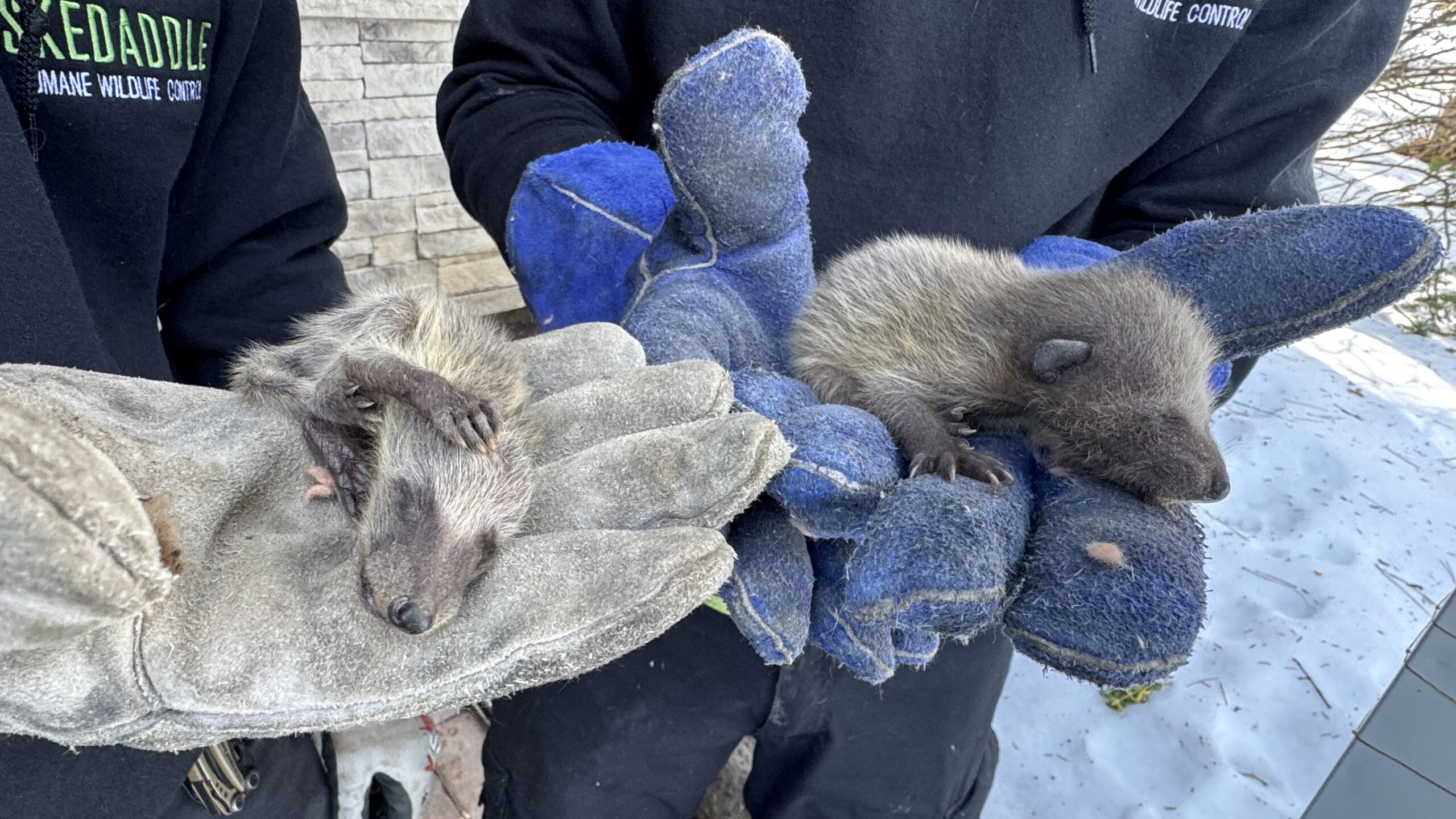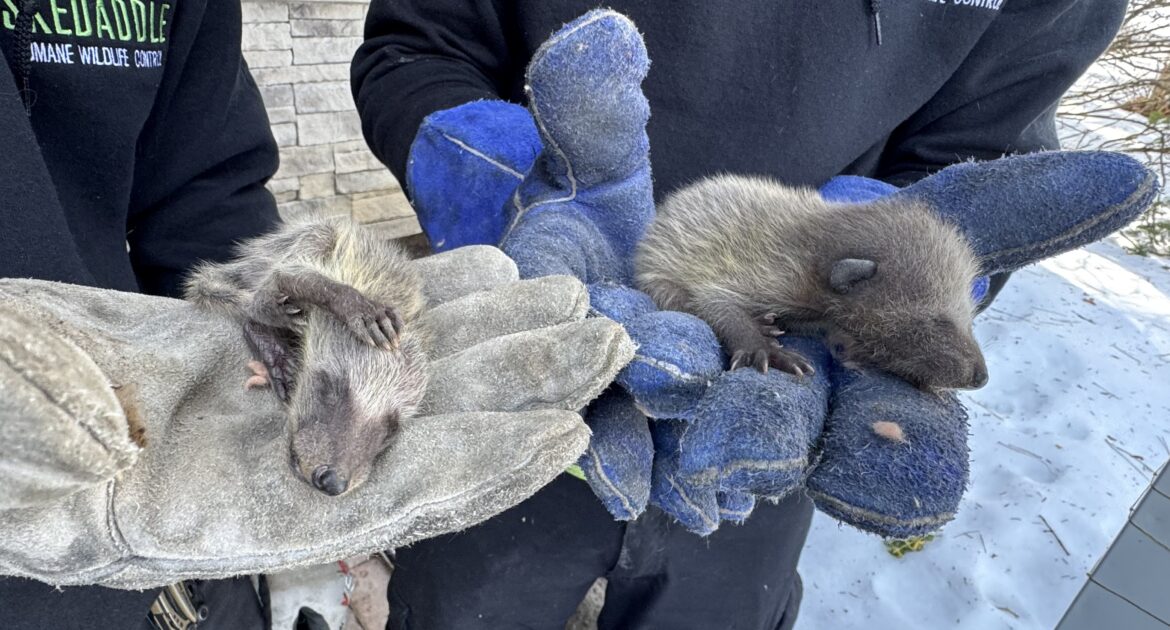Raccoons might look cute from a distance, but they can quickly become a headache when they take over your yard or home. These smart and curious animals are great at sniffing out food, finding shelter, and staying close to water sources, which makes neighborhoods in Anoka County a popular hangout for them. Luckily, smart yard maintenance tips can go a long way in keeping them away from your property.
Using simple raccoon deterrent strategies, like removing food sources and securing shelter spots, can make your yard far less appealing to these unwelcome guests. If they become too persistent, professionals like Skedaddle Humane Wildlife Control in Anoka County are ready to help with expert wildlife removal. Paired with smart landscaping tips to keep raccoons away, these steps can help you protect your property and enjoy a raccoon-free yard.
Here’s how you can take control of your yard and prevent raccoons from becoming too comfortable on your property.
Eliminate Food Sources in Your Yard
Raccoons are always on the lookout for their next meal, and yards full of easy-access food are like a buffet to them. To keep them away, start by removing or securing common food sources around your property.
- Secure Trash Cans: Always use heavy-duty trash cans with tight-fitting lids. If possible, store them in a garage or shed until garbage day. Bungee cords or clamps can add an extra layer of protection.
- Clean BBQ Grills: Leftover grease or food residue on your grill can serve as a huge attraction for raccoons. Clean it thoroughly after each use and cover it securely.
- Pet Food: Never leave pet food or water bowls outdoors overnight. Raccoons are great at scavenging and will happily help themselves to whatever’s left out.
- Garden Protection: If you have a vegetable garden, consider fencing it in or using covers like mesh or cloches to keep curious hands away. For fruit-bearing plants, pick ripe fruit promptly and dispose of windfalls regularly.
By taking these steps, you remove some of the main reasons raccoons might visit your yard in the first place.
Limit Shelter Opportunities
Raccoons are always on the lookout for quiet and safe places to build their nests, which could include unused sheds, piles of wood, or even attics. To keep them from settling in, start by inspecting your home for any small openings, such as gaps in your siding, damaged vents, or spaces under your deck. Cover these areas with steel mesh or hardware cloth to block access. Next, take a close look at your yard.
Be sure to clear away piles of wood, leaves, or other debris where raccoons might hide. Firewood should be stored at least a foot off the ground and kept covered. Chimneys and vents are also common entry points for raccoons, especially when they’re searching for warmth. Install durable chimney caps and secure wildlife-proof covers over vents.
Finally, focus on maintaining open spaces around your home. Trim back bushes and shrubs, especially those close to your house, and avoid planting too densely. By creating an environment that feels exposed and less secure, you can discourage raccoons from nesting near your property.
Focus on Smart Landscaping
How you design and maintain your landscaping can play a significant role in keeping raccoons away. Smart landscaping tips to keep raccoons away include strategies that make your yard less appealing and more challenging for them to move through.
- Motion-Activated Lights and Sprinklers: Raccoons tend to be nocturnal and avoid areas that are too brightly lit or have unexpected movements. Install motion-sensing lights or sprinklers in key areas where raccoons might travel or linger.
- Choose Your Plants Wisely: Some plants are less appealing due to their texture or scent. Consider adding plants like lavender, marigolds, or rosemary, which raccoons often avoid.
- Gravel or Mulch Boundaries: To make it harder for raccoons to access certain areas, create gravel or rough mulch borders. These textures are uncomfortable on their feet and can discourage them from walking through.
- Trim Trees and Branches: Raccoons are excellent climbers and can use overhanging branches for easy access to your roof. Keep branches trimmed at least six to eight feet away from your home.
By thoughtfully organizing your landscaping, you can make your yard less inviting, reducing the chances of raccoons settling in.
Use Barriers to Keep Raccoons Out
Sometimes, physical barriers are the best way to prevent raccoons from entering specific spaces. Here are some great raccoon deterrent strategies you can use to reinforce boundaries.
- Fencing: Install fencing around gardens or compost piles, ideally choosing materials raccoons can’t climb, such as slick or vinyl surfaces. For other fences, add a roller or wobbly top rail to make climbing more difficult.
- Secure Decks and Porches: If your home has a deck or porch with open areas underneath, use lattice or strong mesh to block off access. Be sure the material is secured tightly and buried a few inches into the ground to prevent digging.
- One-Way Doors: If raccoons have already found a way inside your home, one-way doors are a fantastic solution. These allow them to leave but ensure they cannot get back in. At Skedaddle Humane Wildlife Control in Anoka County, we specialize in this approach to humane removal.
Physical barriers act as a strong line of defense and can stop raccoons before they cause trouble.
Manage Water Sources
Water is another essential resource that raccoons need to survive. Reducing their access to water can further discourage them from sticking around.
- Drain Bird Baths at Night: While bird baths are a lovely feature during the day, raccoons often use them as drinking spots at night. Empty them before sunset.
- Fix Water Leaks: Leaky faucets, hoses, or sprinklers provide a reliable water source for wildlife. Check for and repair any leaks around your property promptly.
- Maintain Pools and Ponds: If you have a pool or decorative pond, ensure they are covered or appropriately fenced. Adding motion-activated devices nearby can also help keep unwanted visitors away.
By making water less accessible, raccoons will be more likely to search for a new location.
What to Do When Raccoons Become Persistent?
Even with the best raccoon deterrent strategies, these clever animals can sometimes still find their way into your yard or even your home. When that happens, it’s time to call the professionals.
At Skedaddle Humane Wildlife Control in Anoka County, we understand how persistent raccoons can be. Our team uses advanced techniques, including one-way doors, to safely and humanely make sure raccoons leave your property and cannot return. Wildlife removal in Anoka County is a job best left to experts who know how to handle these situations without risk to you or the animals.
Preventing raccoons is all about smart planning and regular maintenance. From removing food sources to creating a secure, less welcoming environment, small changes can make a big difference in protecting your home and yard. However, when raccoons become a problem, you can rely on us to take care of the issue professionally and effectively.
If you’re ready to prevent raccoons or need help removing unwelcome ones, reach out to us at Skedaddle. Request an estimate today to learn more about raccoon deterrent strategies and how we can help keep your property safe and free from wildlife.




